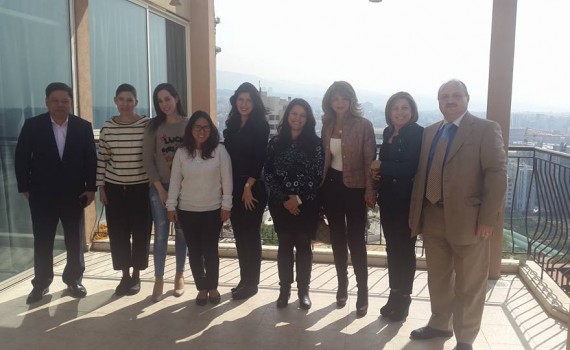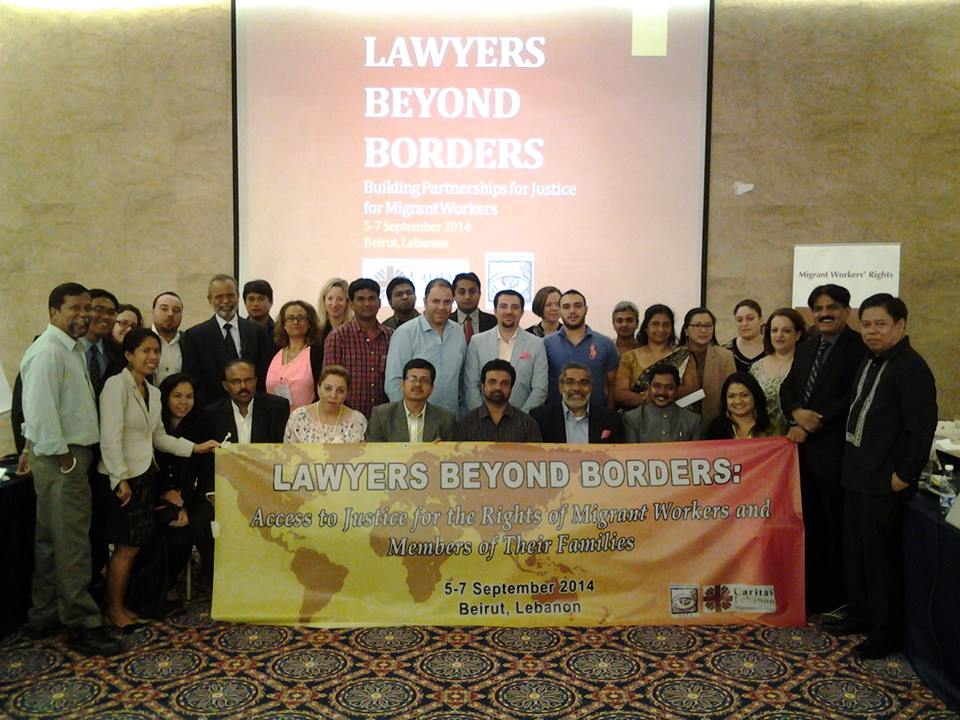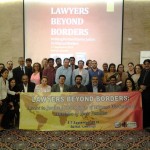
Lawyers Beyond Borders Conducts National Consultation in Lebanon
Category : Activities , News
Migrant Forum in Asia together with Caritas Lebanon Migrants Center organized the Lawyers Beyond Borders national consultation in Lebanon on March 13, 2016 at Padova Hotel bringing lawyers and advocates to talk about who are working on labour and human rights violation cases of migrant workers in the country. Lawyers joining the “local chapter” in Lebanon identify major and common areas of concern on the situations of migrant workers and collaborate with migrant support groups / civil society in Lebanon and with stakeholders in the countries of destination should they require support in understanding and applying legal policies. The meeting’s objectives include:
- Discuss issues of migration, human rights and access to justice for migrant workers
- Sharing of experiences among the lawyers and legal aid practitioners in Lebanon in terms of improving access to justice for migrant workers in the country.
- Identify a common platform among lawyers in Lebanon that can mobilize actions to integrate migrants’ rights issues in their work and enhance the promotion and protection of the rights of migrant workers and members of their families in the country.
Noha Roukoss from CLMC talked about the Local labour policies and regulation, its mechanisms an challenges in Lebanon. An expert from the International Labour Organization Ms. Zeina Mezher, National coordinator of the labour migration programme discussed the implementation of ILO Labour Standards in the context of Lebanon. Atty. Henry Rojas, LBB Regional Coordinator, also discussed the process of cross border litigation in the context of a country of origin.

